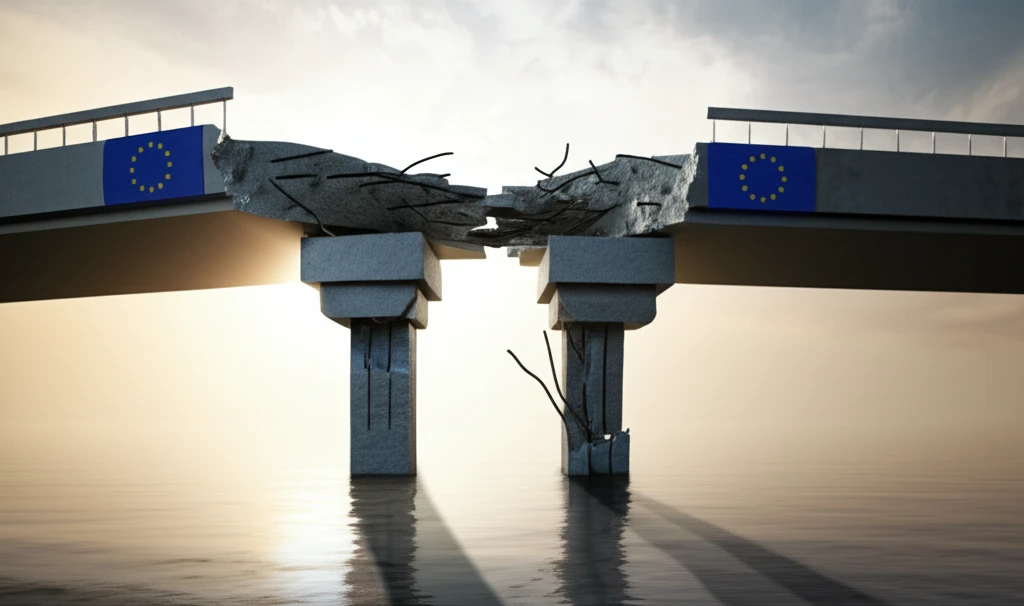
Is EU Enlargement Really Working? A Deep Dive into Bosnia, Herzegovina, and Kosovo
"Explore how EU influence and political promises impact democratization in the Balkans, revealing the complex realities beyond policy."
The fall of communism in Eastern Europe sparked hopes for widespread democratization. However, in the Western Balkans, this transition was complicated by the violent breakup of Yugoslavia, where state-building and national identity became intertwined with democratization. The European Union (EU) stepped in, aiming to foster economic prosperity and stable democracies across the region.
More than a decade into the EU enlargement process, significant challenges remain. One critical issue is the weak implementation of the rule of law, which directly impacts civil liberties. Bosnia and Herzegovina (BiH) and Kosovo are prime examples, with their progress stalled and EU expectations unmet. The core question is: How effective is the EU's enlargement process, particularly its political conditions, in boosting democracy in these complex post-conflict societies?
This article delves into the EU's role in the democratization of BiH and Kosovo. By comparing these two countries, we aim to understand how the EU's political conditions influence democratic development. Both nations share a legacy from Yugoslavia and have undergone peacebuilding with externally-driven state-building. This involves establishing state institutions acceptable to all domestic actors while aligning with the EU integration process.
The EU's Carrot-and-Stick Approach: Does It Really Work?

The EU uses a strategy known as “conditionality,” often described as a carrot-and-stick approach. The “carrots” are incentives like economic aid and eventual membership, offered for good behavior. The “sticks” are punishments, such as withholding benefits, for failing to meet specific obligations. This strategy is rooted in the idea that external pressure can drive internal reforms. However, theories diverge on how this actually plays out.
- Rationalist Theory: EU conditionality alters the incentives for local actors, making reforms more attractive.
- Constructivist Theory: Domestic actors adopt EU norms because they view them as legitimate and beneficial for their society.
- Practical Implication: The success of EU influence hinges on both changing incentives and fostering a sense of shared values.
Reassessing EU's Role: A Path Forward
The EU's approach in the Balkans is complex and requires a nuanced understanding of local dynamics. While conditionality has had some positive effects, its success is not guaranteed. In Bosnia and Herzegovina, the EU's influence was initially effective but stalled due to internal political conflicts and a failure to fully embrace EU values. In Kosovo, a more tailored approach, focusing on gradual progress and normalization of relations with Serbia, has shown promise. Moving forward, the EU needs to adapt its strategies, focusing on building genuine commitment to democratic values and fostering inclusive political processes to achieve lasting democratization in the region.
